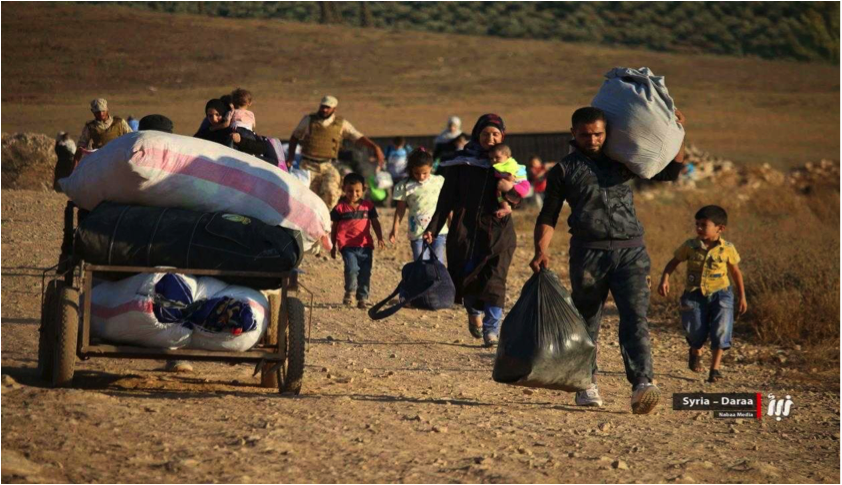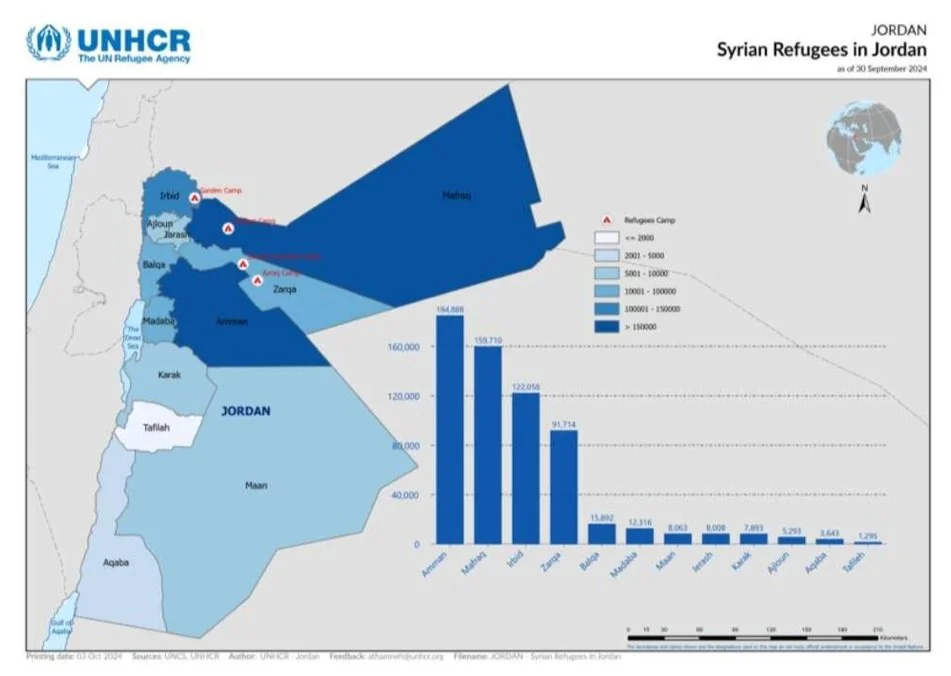The fall of Bashar al-Assad's regime on December 8, 2024, and the rise of Ahmad al-Sharaa to power created an important opportunity for refugees to return to their country, and the hopes of some Syrian refugees to fulfill. However, United Nations indicates that the number of those who returned does not exceed 65,000 out of 650,000 refugees data . Opinion polls confirmed that 72% of refugees do not consider returning under the current circumstances, which necessitates understanding the underlying reasons for this. This piece aims to identify the real reasons that prevent Syrian refugees from returning to their country after the political system change and the emergence of a new political authority…
Read MoreIn a world where more than half of the Syrian refugees are denied the most basic means of employment, Jordan pioneered a new approach. Instead of leaving the Syrian refugees in perpetual waiting, the country undertook a carefully planned approach: to empower Syrians during their displacement so that they would one day be able to return to Syria not as victims, but as skilled and self-reliant assets. Unlike other host countries that have struggled to integrate Syrian refugees into their formal labor market (or completely omit them)-Jordan took steps in the right direction early on. Jordan provided access to work permits to the Syrians, removed the fees levied on the permits, and provided vocational training and skills development opportunities…
Read MoreJordan, throughout its modern history, has dealt with large waves of refugees, making it one of the countries hosting the highest percentage of refugees relative to its population. The kingdom hosts around 1.3 million Syrian citizens, including more than 671,000 registered refugees with the United Nations. Only about 10% of these refugees live in refugee camps, while the rest are spread across local communities, leading to increasing negative repercussions amid the ongoing Syrian crisis. Jordan, under its Hashemite leadership, provided assistance to refugees based on deep-rooted humanitarian, moral, and national values. However, the kingdom emphasizes…
Read MoreThe Syrian crisis, which erupted in 2011, witnessed one of the largest displacement waves in modern history, with more than 13 million Syrians forced to leave their homes under the weight of war and destruction, according to Najat Rochdi, the Deputy Special Envoy of the United Nations to Syria. In 2023 alone, the number of internally displaced persons rose to 7.2 million, while the number of refugees and forcibly displaced persons reached 6.5 million, distributed across 137 countries. Amid these events, Jordan opened its doors to more than 1.3 million Syrians, including over 671,000 registered refugees with the United Nations High Commissioner for Refugees. Although a small percentage of these refugees live…
Read MoreAs the Jordanian government was devising strategies and policies to address the Syrian refugee crisis and repatriate nearly 1.3 million Syrian refugees, the fall of Bashar al-Assad’s regime on December 8, 2024, and the opposition’s takeover of power was a “new opportunity” to radically and completely reconsider its strategy towards Syrian refugees, especially since this crisis represents a major challenge for a small country where 31% of its population of 11 million people hold “refugee status,” most of whom are Palestinians and Syrians. The main question is: will the transformation in Jordan's northern neighbor really contribute to the voluntary and substantial return of refugees or will the refugees hesitate between staying in their host country…
Read MoreUntil late 2022, more than 670,000 people from Syria had sought refuge in Jordan, according to the United Nations High Commissioner for Refugees (UNHCR), with over 85% of Syrians living outside refugee camps in rented accommodations. According to the Refugee Commission, Jordan also hosted asylum seekers and refugees from other countries during 2022, including 65,854 Iraqis, 12,934 Yemenis, 5,679 Sudanese, 651 Somalis, and 1,379 individuals from other countries…
Read More





